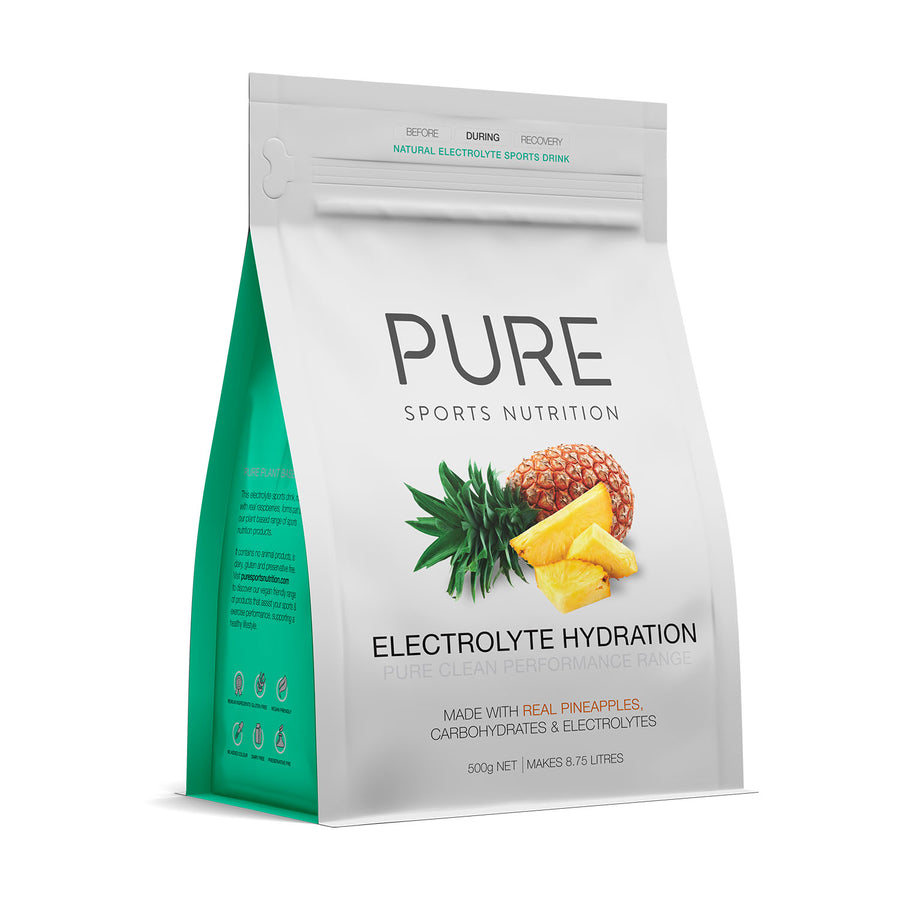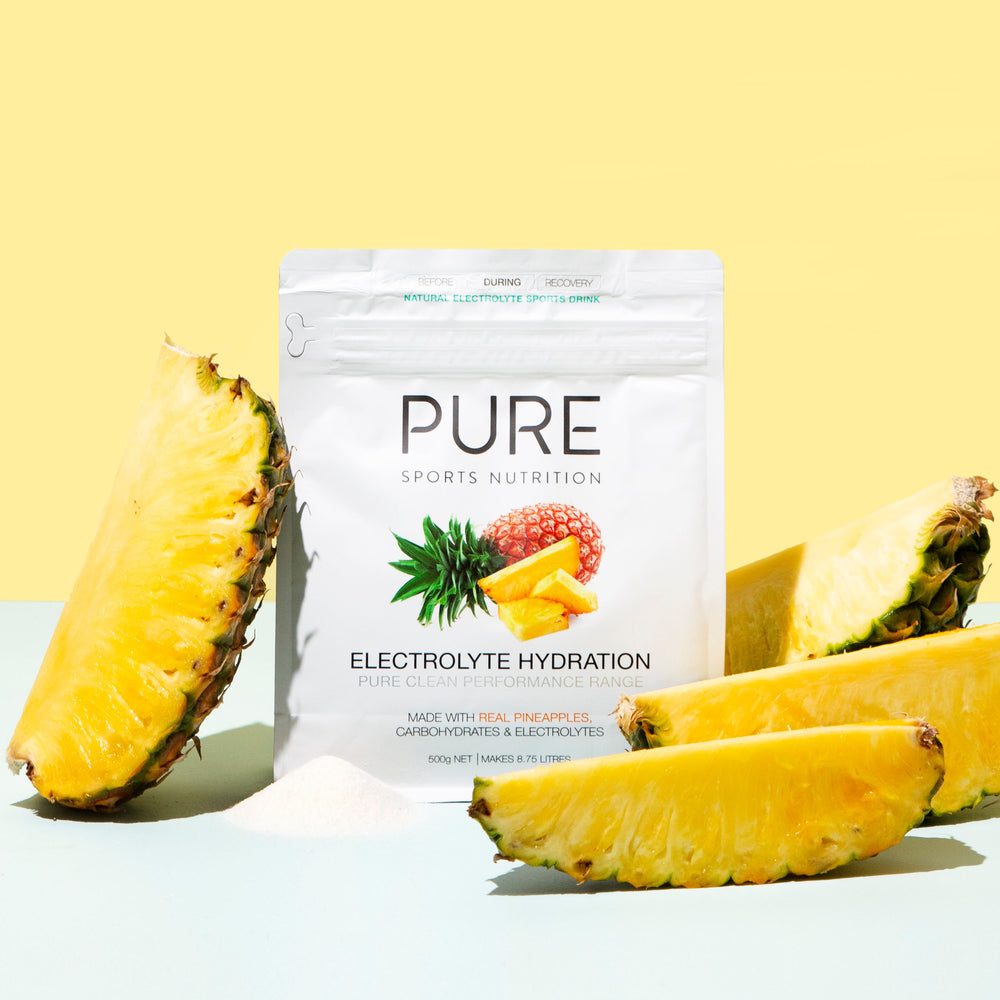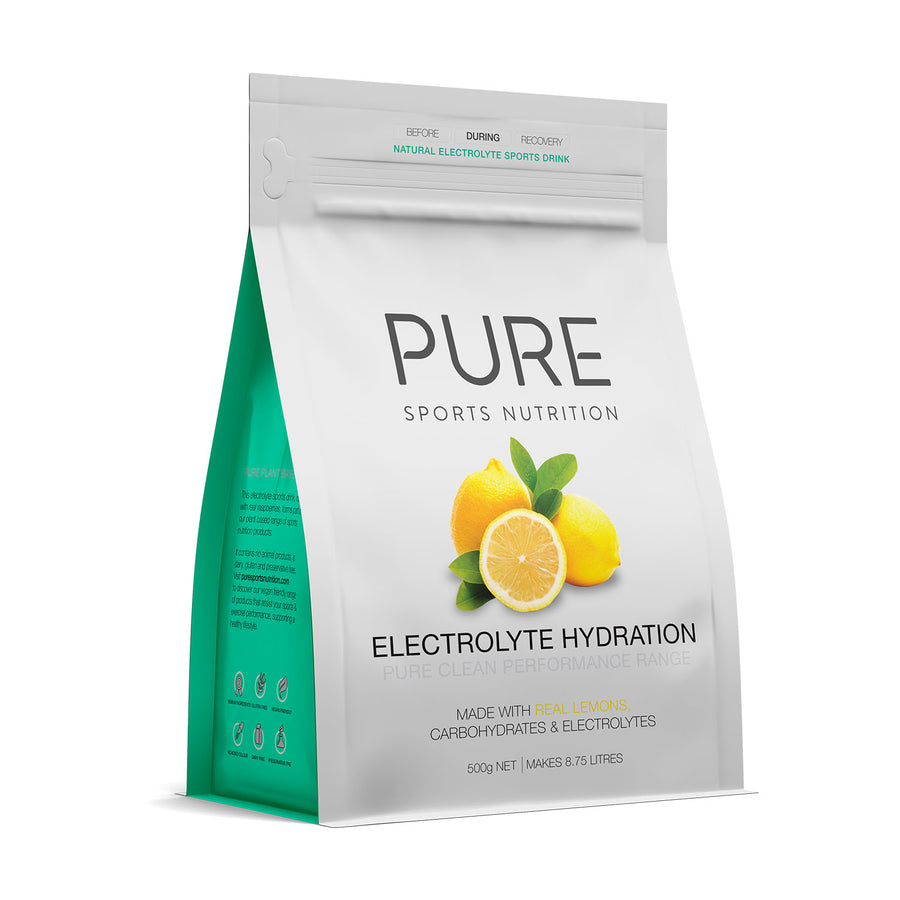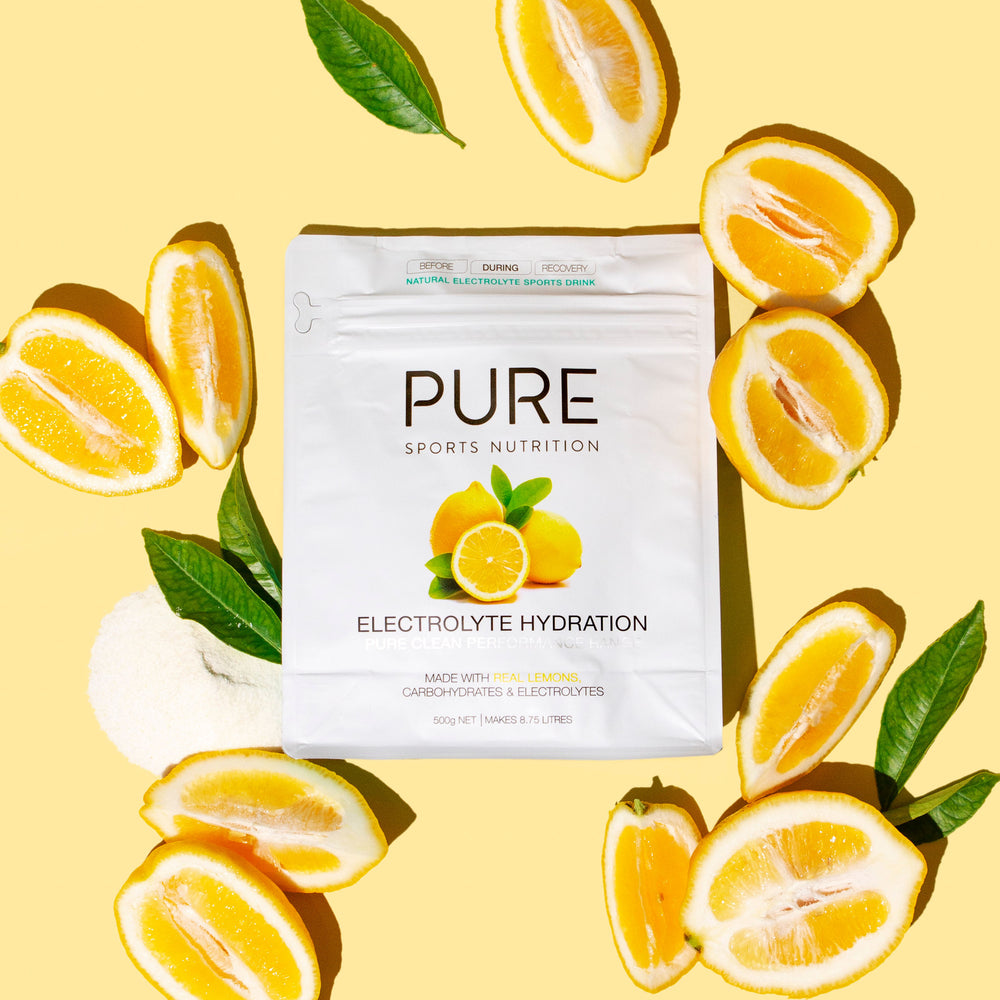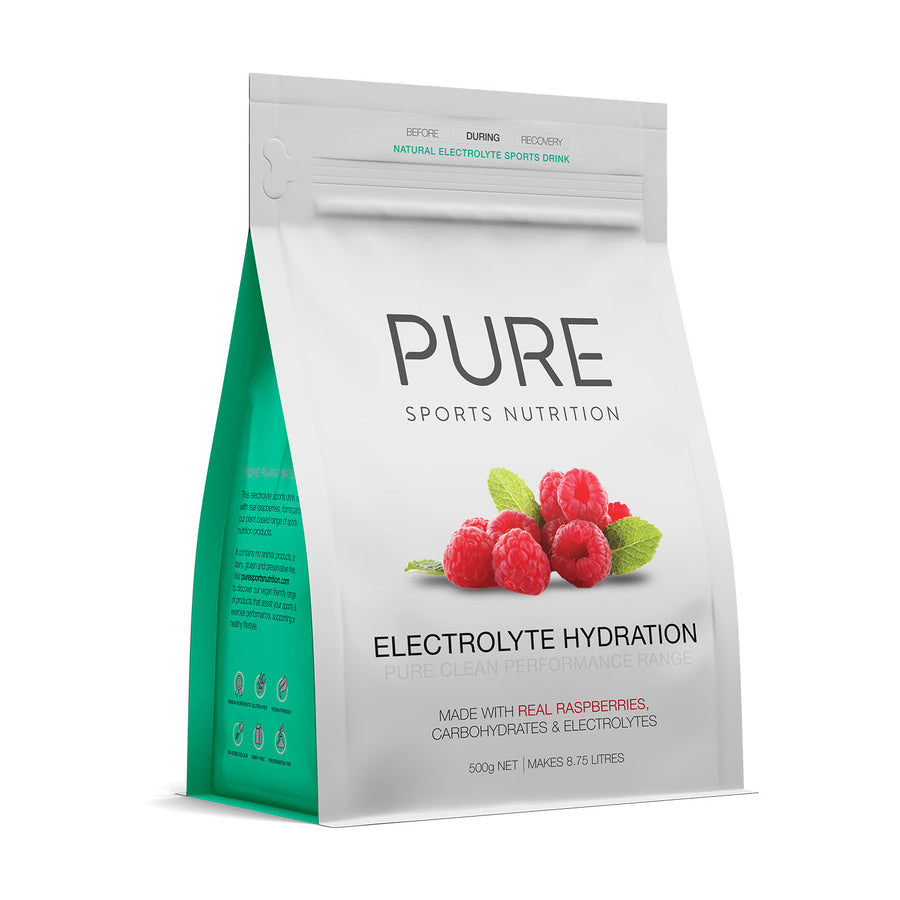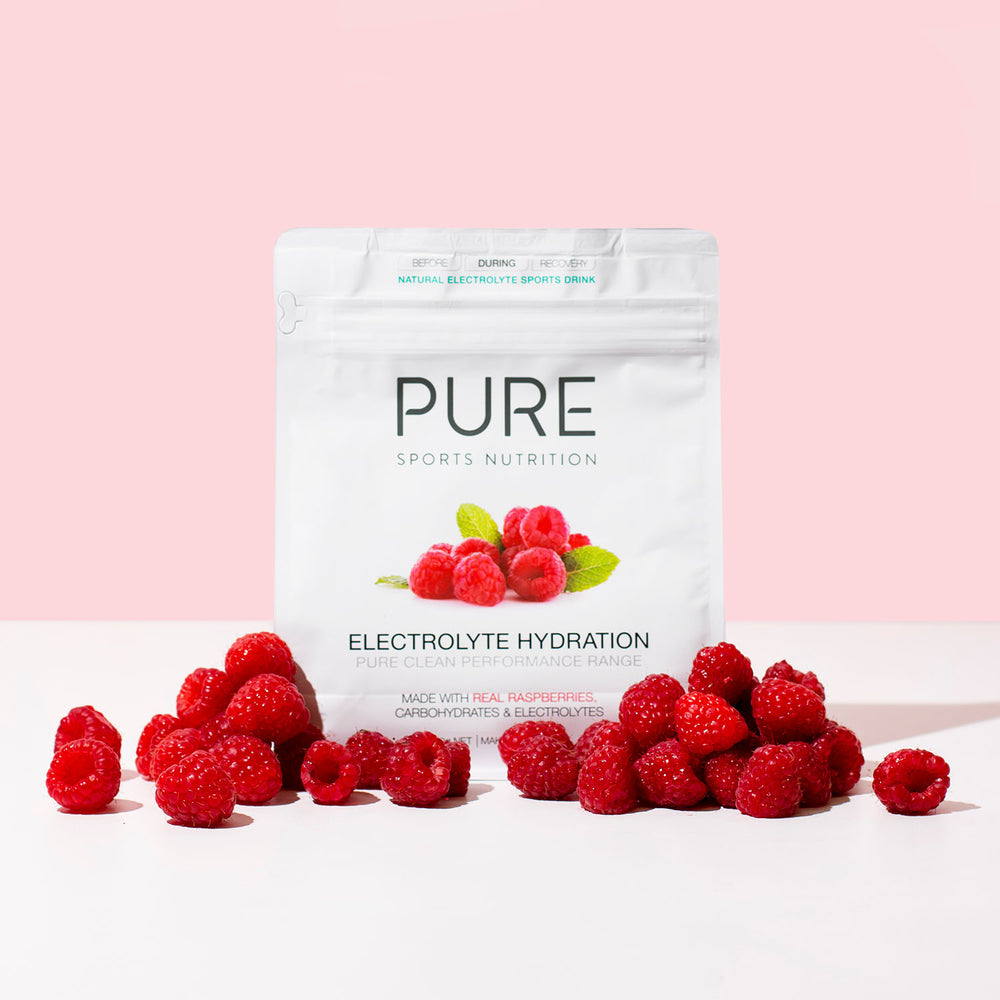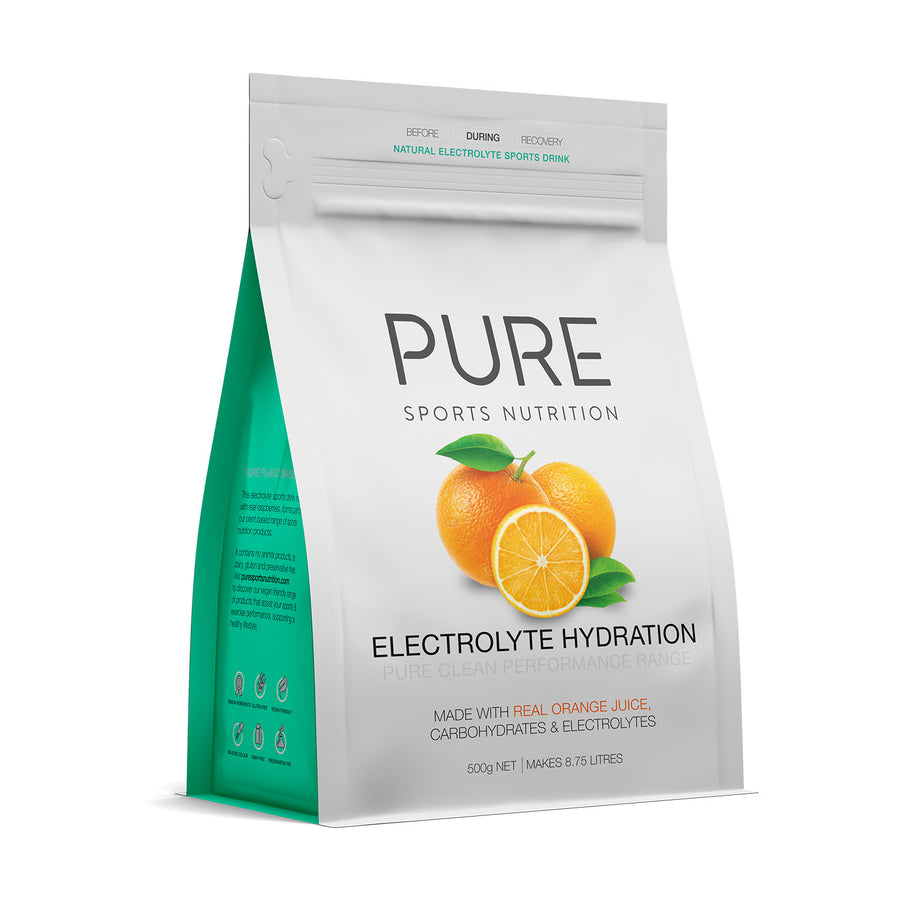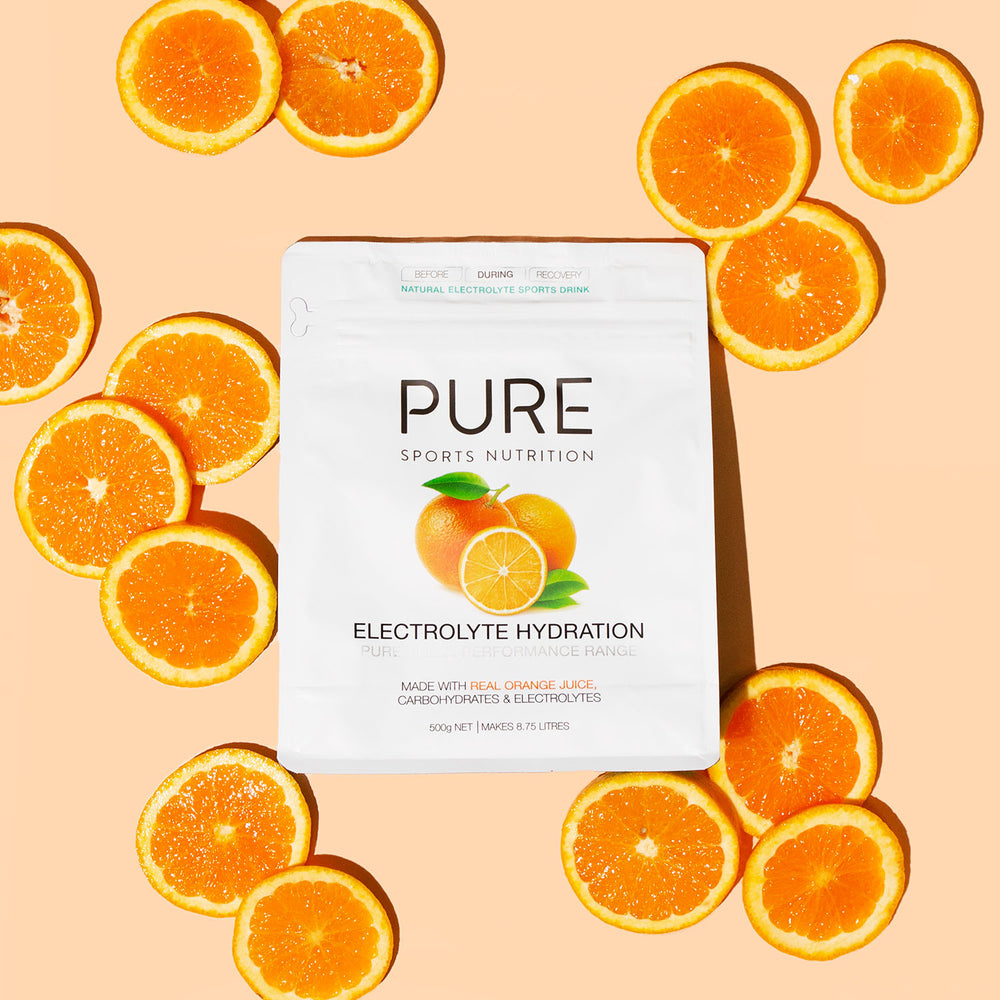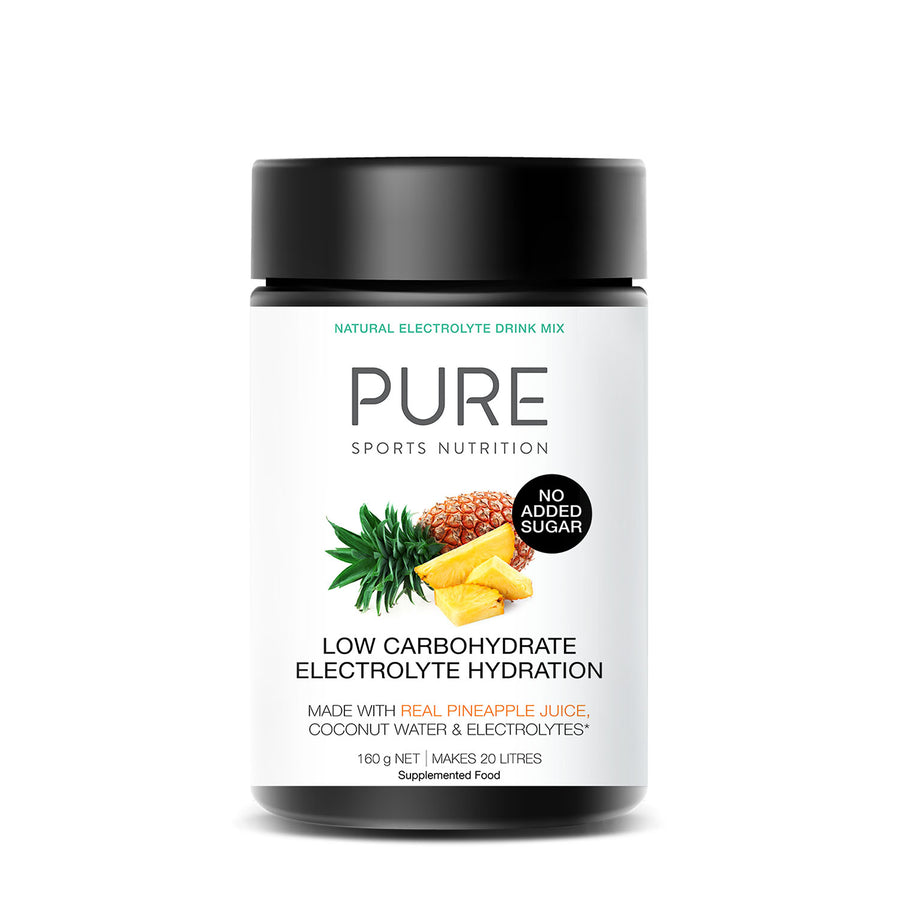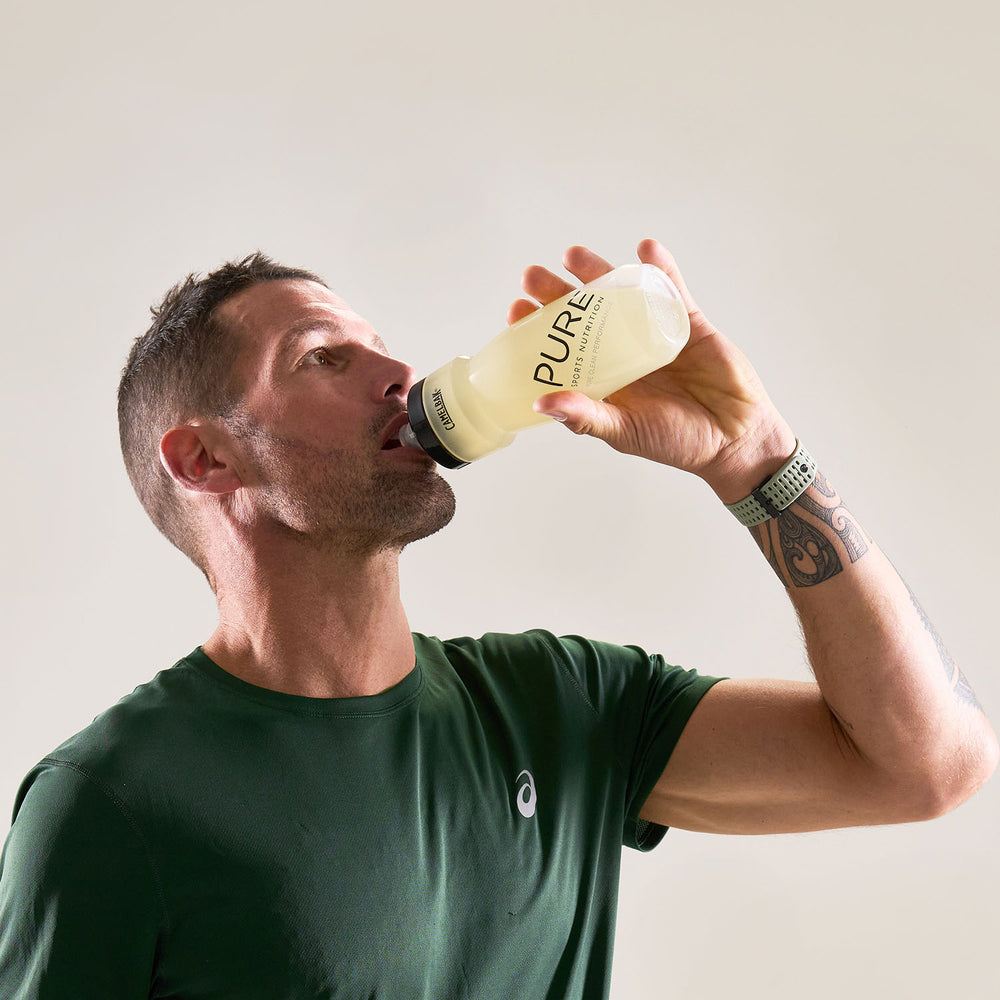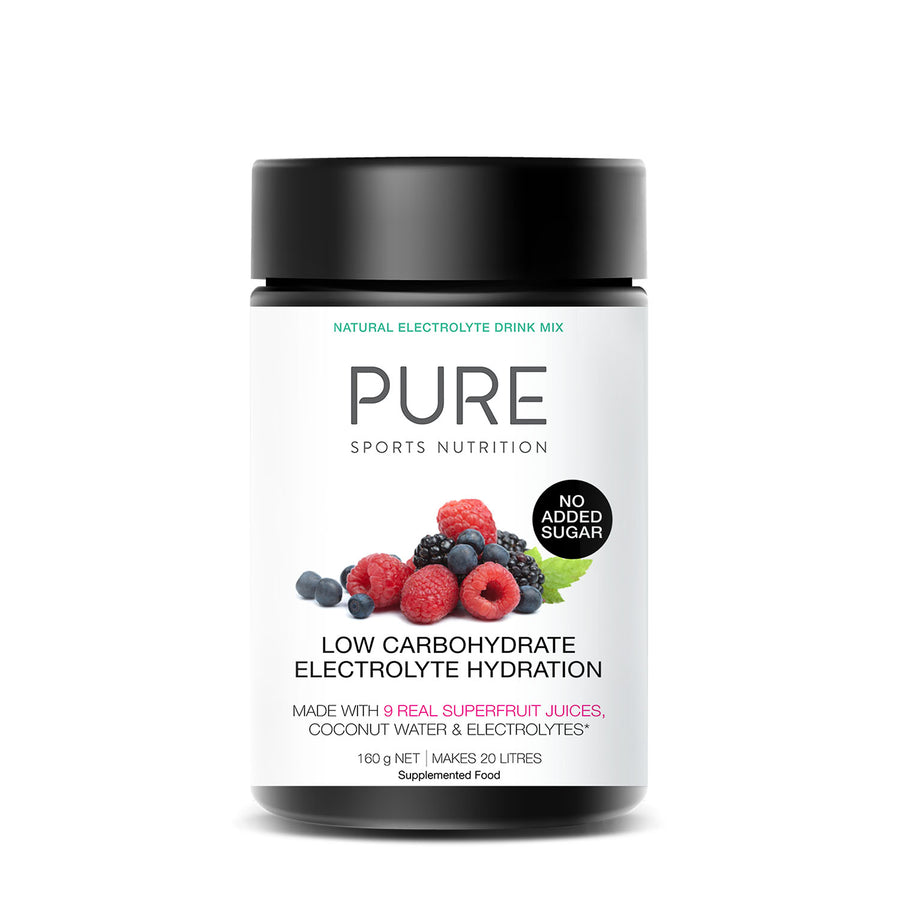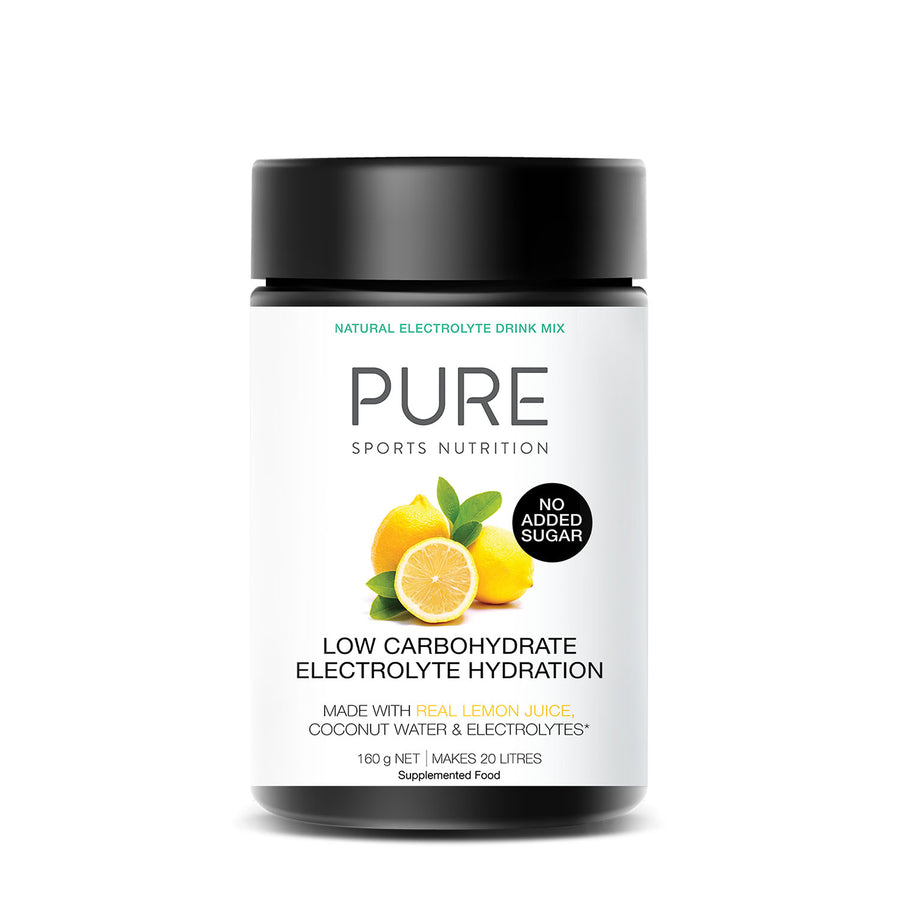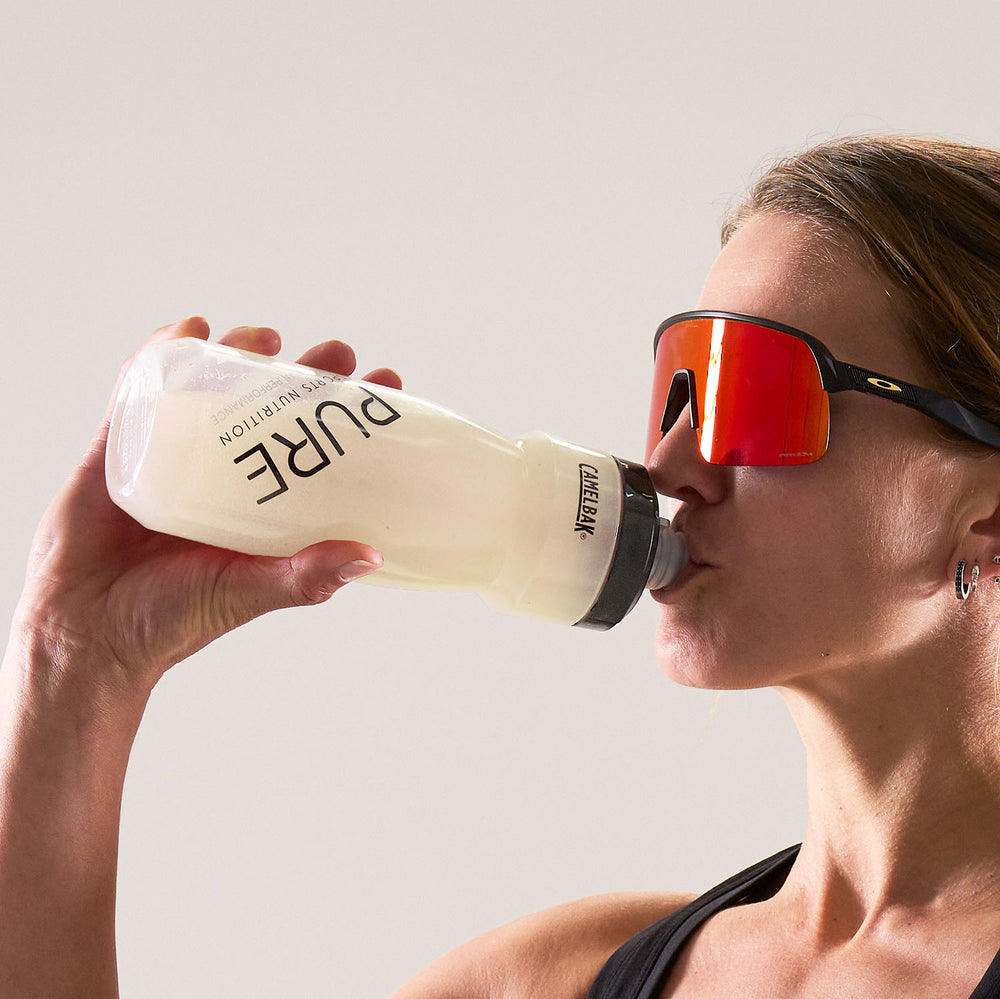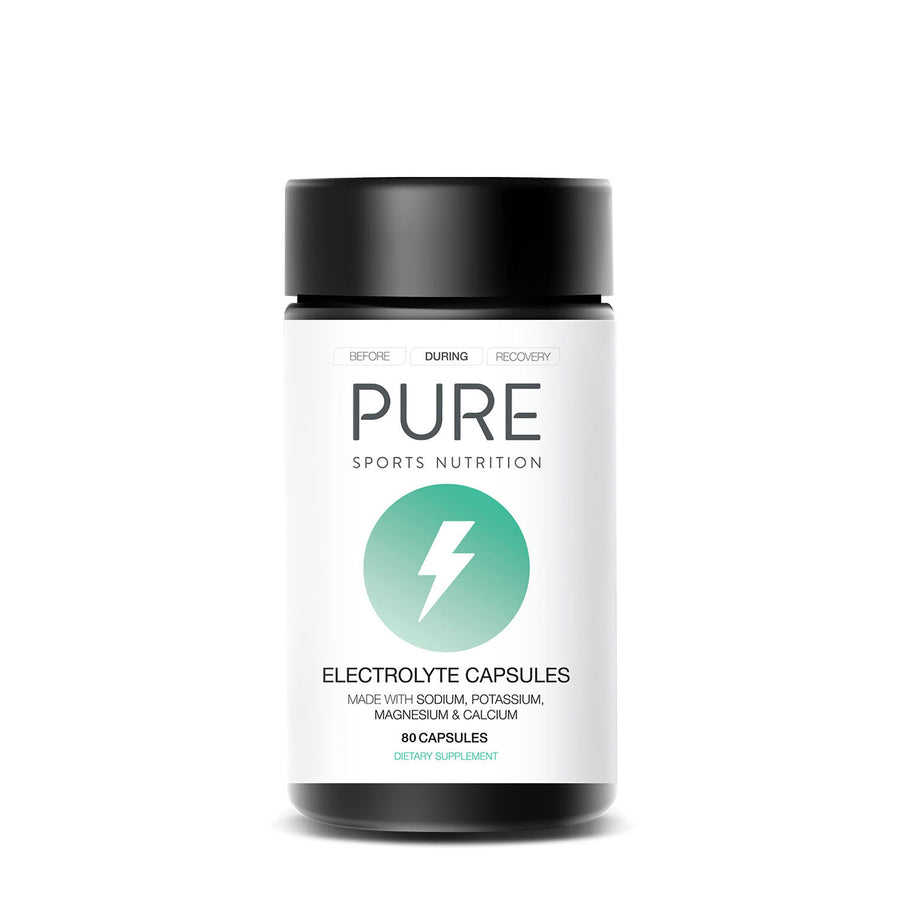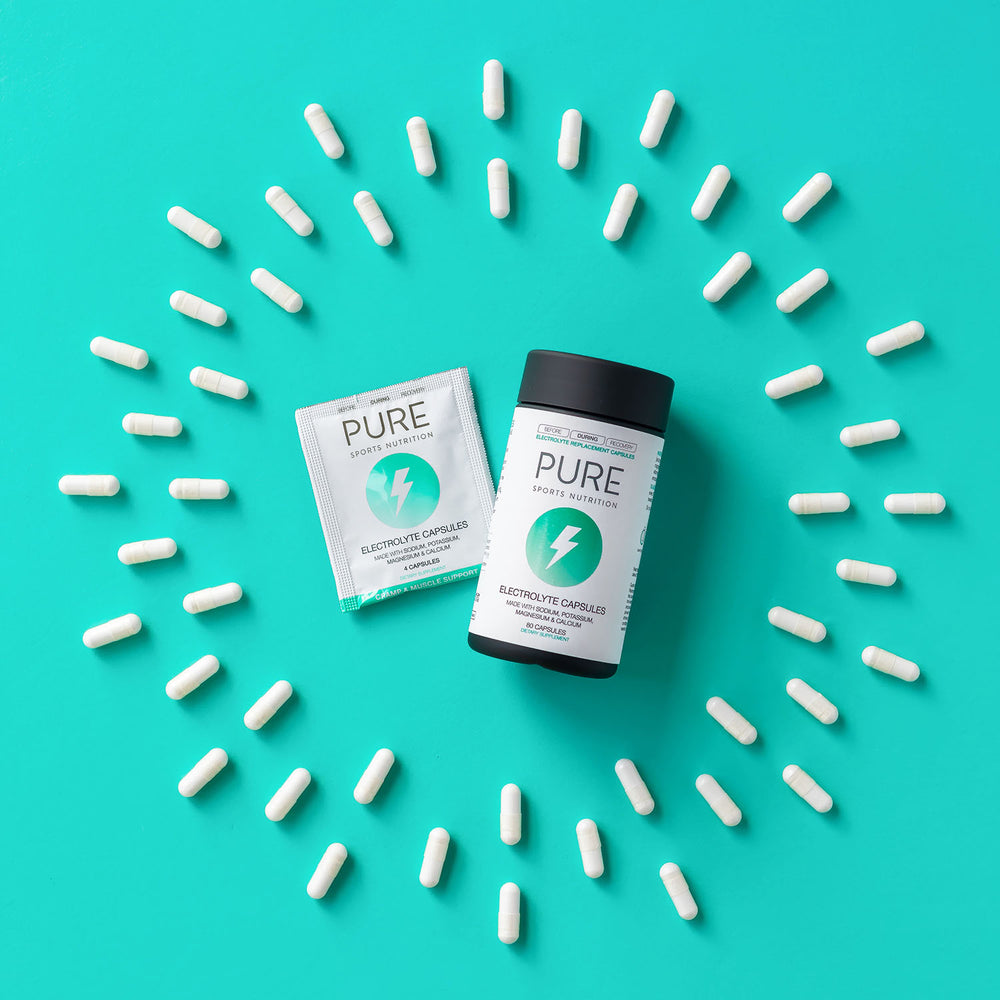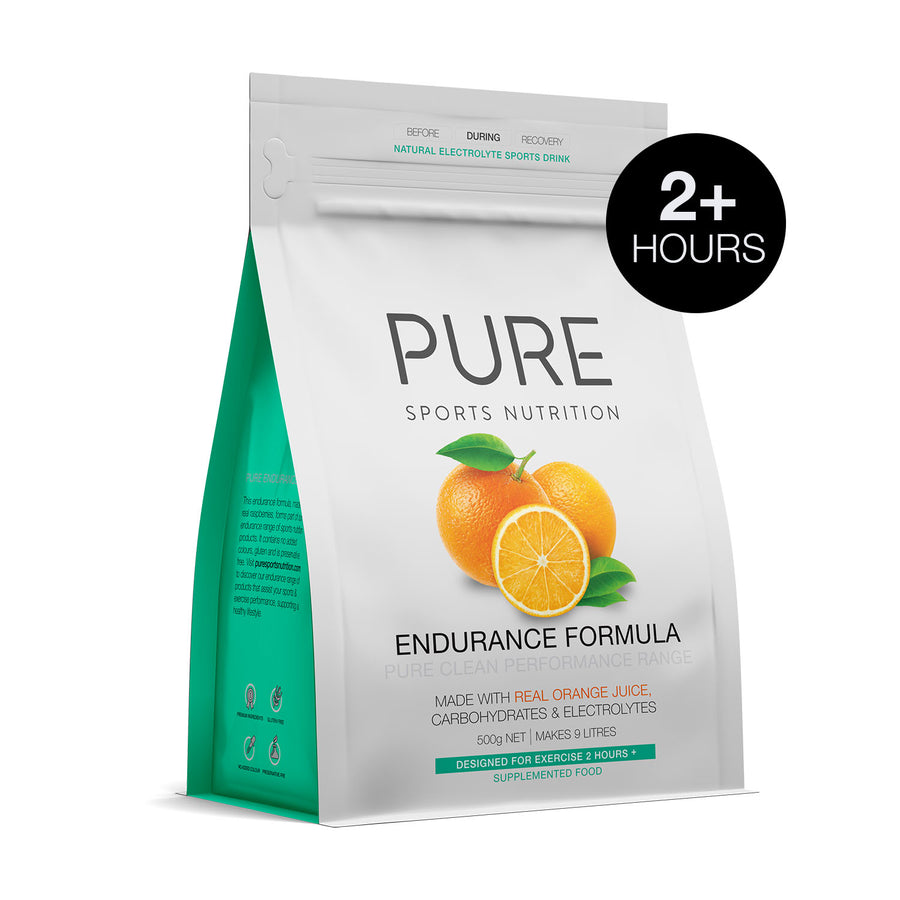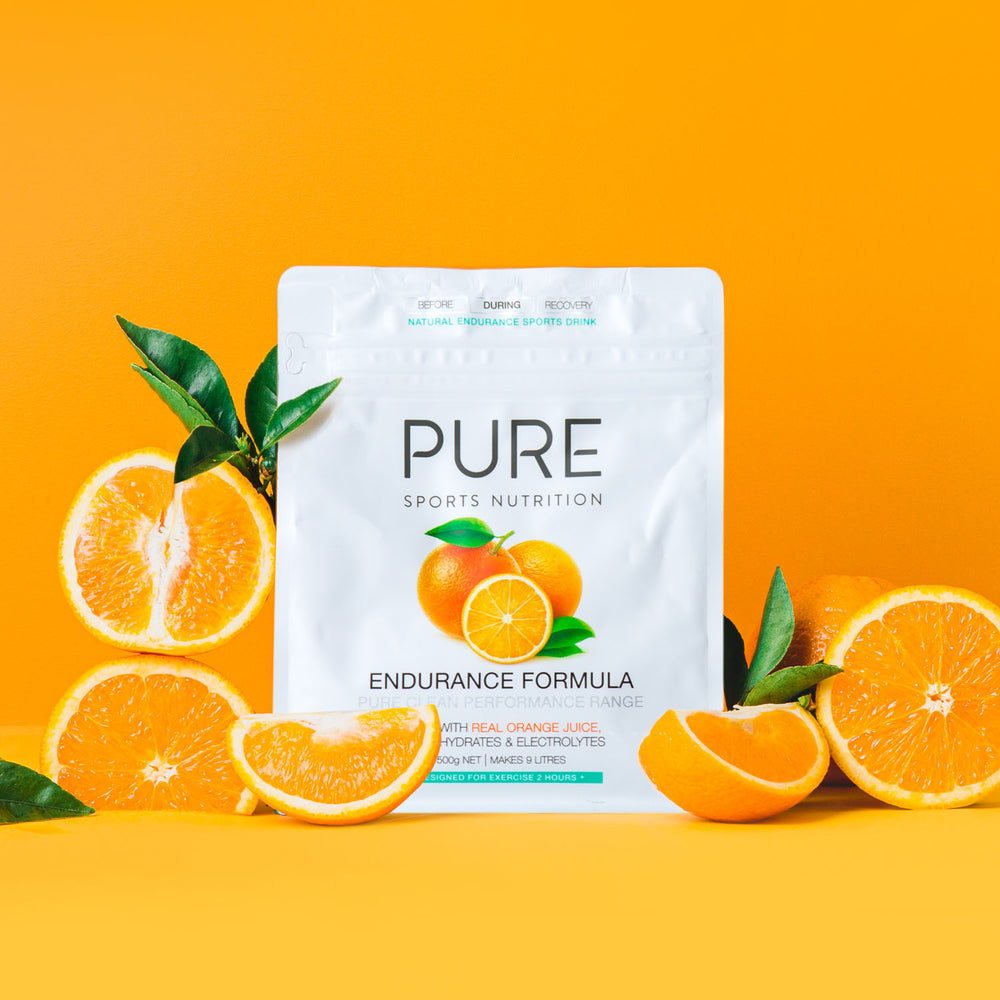
Race Day Nutrition - With Conrad Goodhew NZRD
You wouldn’t run a marathon in pair of brand-new shoes, just like you shouldn’t run a marathon without trialling your nutrition strategy. Like any other time, race day nutrition is different for everyone and practice should be considered prior to the race. This article will dive into pre, during and post-race nutrition, including what you need to start thinking about now to smash that goal time you are thinking of.
Nutiriton Leading into an Event - Carb Loading
Topping up your glycogen (stored carbohydrates) has been shown to drastically improve performance. Race day nutrition isn’t only about the race itself, but also what you are doing the days leading in.
The Week Before
For a marathon, it is recommended that you carbohydrate (carb) load for 3-4 days prior to your event to increase performance2. For a half marathon, 2 days will be sufficient for most people.
Recommendations are:
Males: 8-12 g/kg of carbs per day
Females: 6-8 g/kg of carbs per day
To achieve this:
- Change snack options to ones with higher carbs.
- Increase the portion of carbs on your plate.
- Reduce fat and fibre intake (if struggling with volume)
- Incorporate high carbohydrate drinks such as orange juice, chocolate milk and sports drinks.
Read package labels and use food tracking apps to help gauge what foods to choose (or how much). For more information, visit our in depth article on carbohydrate loading.
Other considerations:
Supplementing with electrolytes, blackcurrant, beetroot and/or bicarbonate are all well researched options to consider in the week before your event. Each of these supplements are recognised for their performance enhancing benefit, but should always be practiced with during training to ensure they work for you. Note: precaution must be taken if using beetroot and bicarbonate specifically due to GI disturbance. See our carbohydrate loading article for detail.
The Day Before
The day before your race is often spent preparing your gear, traveling and trying to rest – food is often forgotten. Planning for this day is just as important as the race itself. These are our key points
- Stay well hydrated all day: Waking up in the morning of race day with clear pee, without needing to go to the toilet during the night. This should be more of a priority for those flying and/or staying in a hotel as it is easier to become dehydrated due to air conditioning.
- Continue to carb load today: This is not just about having a high carb dinner, as this should be something you trust to get a good night sleep on, It doesn’t have to be pizza/pasta.
- Prepare and pack enough extra food: Travel food (ie shops/cafes to stop in for lunch) will unlikely meet your nutritional requirements (particularly your carb targets). Delays are also something to consider.
- Location, Location, Location: Make sure you have researched the place you are staying to ensure they have the facilities you need or restaurants nearby that are suitable.
Race Day Breakfast
Some people can’t eat a decent breakfast. But if you practice and nail this, it will become easier. Base the timing of your breakfast around your race start.
2-3 hours before the race:
- Top up your carbohydrate stores. Aim for 1-4g of carbs per kg body weight at this meal1. Opt for something low in fibre, fat and protein to minimise GI discomfort.
- Completely hydrate. If you are waking up with yellow urine, consider a sports drink early so it gives you time to process and go to the toilet before the start line.
- Try and go to the toilet before you leave the house – have coffee early if this helps get things moving.
1 hour before the race:
- Sip on a sports drink as required after your morning meal.
- Have caffeine (optional) 1 hour to 30 minutes before the race starts. If you can handle 2 coffees/caffeine drinks pre-race, it is ok to do so.
- Consume gels/lollies (~30g) 0-10 minutes before the race starts – these are great on the start line.
Developing Your Race Plan
You need to plan for what and when you are going to eat during your race, so you can practice it during training. Follow the simple process below to build your plan (and see our example in the appendix):
- Plan your aid stations
- Set your targets
- Practice your strategy
Plan your aid station (if applicable)
Start by working out your average splits over the race. This will enable you to calculate (apx) the time it will take you to reach each aid station (and which ones you will expect to hit).
- Setting a goal or expected finish time
- Look at the course (hills etc) and work out your split time estimates
- Estimate how long it will take for you to reach each aid station
Set your carb and hydration targets
Science tells us to aim for 30-90g of carbs per hour (sometimes up to 120g) within the race will enhance performance1,2. Although it may feel early, this should be started in the very first hour, if not on the start line. Consider the times below to establish your carb needs.
- 2 hour runner will require 30g of carbs per hour
- 3 hour runner will require 60g of carbs per hour
- 3+ hour runner will require 60-90g of carbs per hour
For any race over 4h, consider incorporating food options as carbohydrates to reduce flavour fatigue and GI upset.
For fuel options, use the “during training carbs” sheet available here.
To determine your hydration needs, use the ‘sweat rate’ equation below. All athletes should consider at least ½ of their fluids contain an electrolyte source (with or without carbs) to prevent hyponatremia.
Since you have broken down the times to each aid station, you can use these as guides for eating and drinking time. We suggest most people (unless you are an elite), should take their time on the aid stations. Have your food coming into the aid station then walk through and wash it down with your fluid needs. You may lose 5-10 seconds, but will make up for this over the rest of the race.
Practice your race day strategy
Don’t wait until race day to use the sports drinks (or other) provided on the aid station. Experiment with these during your longer training runs to ensure they work best for you. The key is to build your tolerance over time, hence why training with supplements/food is crucial. If the products provided on the aid station aren’t quite right for you, trial other types/brands. Think about how you will carry these during the race and start practicing their storage and use now. Consider possible gear such as running vests, belts and hydration bladders.
With any race, there could be a chance of experiencing gut upset. Training with a higher carb target can help combat this. Also ensuring you practice with a wide range of carb options, not only to help with absorption out of your gut, but also help to reduce flavour fatigue.
Hydration and Sweat Rate Testing
On your run it is important you continue to keep hydrated, especially in hot conditions. Evidence suggests that there is a drop in physical and cognitive performance for any body weight loss more than 2%5, 6. This means we must try our best to reduce this weight loss (through both food and fluid consumption). It is also about getting this right to prevent over hydration - causing you to need the bathroom and preventing hyponatremia.
Drinking to thirst may work well for the less competitive athlete (that doesn’t sweat much), but if you want to push yourself (or you sweat lots) you may need to structure a plan. To get a more individualised idea on how much you should drink, you can calculate your sweat rate below. Ideally you want to test this for exercise over an hour, as sweat rate can change over the duration of a run4.
Sweat rate testing process4:
- Go to the toilet* before you weigh yourself
- Weigh yourself before with minimal clothing
- Note down duration, intensity, and ambient temperature of your training
- Weigh yourself after with minimal clothing and towel down as needed (to remove sweat and excess water weight)*
- Determine how much you have eaten and drunk
This can be done by weighing your bottles pre and post (its ok to weigh bottles and packets, as long as you weigh them at the end too).
*If you go to the toilet in-between weigh ins, unless you can measure it, it would not be an accurate result – so aim to go toilet before first weigh in, and after second weigh in.
Calculations
Weight before – Weight after = Weight lost (Kg)
Food & fluid before – food & fluid after = Food and fluid consumed (Kg)
Weight lost + food & fluid consumed = Total sweat lost (L)
Total sweat lost (L) / duration (h) = Sweat rate (L per h)
Remember, when using sweat rates, it is not about getting it perfect, it is about establishing a calculated guess to plan for what your needs are likely to be for the event on the day.
You can now determine how much food and fluid you need in your race.
Post Race Nutrition
Optimising your post-race nutrition is key to kick starting your recovery. The same three principles used during your training should be applied here.
- Replenish with carbohydrates. Aim for 0.8-1.2g/kg of good quality carbs.
- Repair with protein. Aim for 0.2-0.4g/kg in this meal or snack.
- Rehydrate. Critically important if you are a heavy sweater. A drink containing electrolytes may also be favourable. Consume ~150% of body weight loss over 2 hours after the race.
Nerves and GI Upset
Nerves around race day are not uncommon, in fact they are completely normal. They aren’t necessarily bad either and can be related to excitement. Regardless of the trigger, nerves can cause significant GI distress and impact our ability to fuel adequately. This can compromise our performance potential, so how we deal with nerves is what matters most. Figuring out what foods or fluids you can tolerate when nervous or establishing coping mechanisms to address your nerves will help with a successful pre-race nutrition implementation. But also note, if it doesn’t go exactly to plan on race day that is ok too, just do what you can manage as your back up plan is the eating 2-4 days prior.
Key Takeaways
Practice, practice, practice! Whatever your choice of food and fluid is, make sure you practice with it during training. You may find you prefer lollies over gels, or you would prefer to get all your carbohydrates from a sports drink. Whatever you choose, you need to train with it to ensure you don’t surprise your stomach come race day. Your GI tract may need to be trained3 to tolerate 30-90g of carbs while running. The same goes for your pre-race dinner and breakfast, practice, practice, practice.
Enjoy Yourself
When it comes to race day, you’ve done the hard work. All there is left to do is go all out, give it your best and enjoy.
If you need more individualised help or have any questions on how to best use supplements, please don’t hesitate to get in touch with the team at Conrad Goodhew Nutrition. Visit their website or follow them on social media.
References
1. Kersick, C., Harvey, T., Stout, J., Campbell, B., Wilborn, C., Kreider, R., & Antonia, J. (2008). International Society of Sports Nutrition position stand: nutrient timing. Journal of the International Society of Sports Nutrition, 5(1), 1-12.
2. Vitale, K., & Getzin, A. (2019). Nutrition and supplement update for the endurance athlete: review and recommendations. Nutrients, 11(6), 1289
3. Jeukendrup, A. E. (2017). Training the gut for athletes. Sports Medicine, 47(1), 101-110.
4. Baker, L. B. (2017). Sweating rate and sweat sodium concentration in athletes: a review of methodology and intra/interindividual variability. Sport Medicine, 47(1), 111-128.
5. Goulet, E. d. (2012). Dehydration and endurance performance in competitive athletes. Nutrition Reviews, 70(suppl_2), S132-S136.
6. Adan, A. (2012). Cognitive performance and dehydration. Journal of the American College of Nutrition, 31(2), 71-78.
Example Race Plan: Queenstown Marathon
Here is an example race plan based on a ‘case study’ individual:
Male, 26yo ~75kg. Running their 2nd marathon with a goal time of 3 hour 30 minutes. Sweat rate of 750mL per hour (high sweater).
Days leading in:
- 3-4 day carb loading of 600-750g (8-10g/kg/day of carbs per day for men).
- Remember lower fibre/protein if struggling with intake
- 1 electrolyte serves per day (optional low carb or with carb)
Day before:
- As above re carb loading
- Electrolyte load – 2 servings of anything. 1 at lunch and 1 at dinner
- Make sure you are well hydrated this day, aim for 30mL per kg (2L+)
Plan:
- PURE Sports Nutrition Hydration electrolytes will be on the aid station – make sure you practice with these before the race.
- Goal ~60-90g carbs per hour (full marathon). Every 20-30 minutes we want to look at something initially.
Morning Load Phase
- Decent carb hit of 75-300g (based on 1-4g/kg) & hydrate well 1.5h pre-race.
- “Carb loading options” sheet available here.
- Maintenance – snack if needed (but time to focus on getting to the race and settling nerves)
Aid Stations:
- Use the aid stations specified. Walk through the aid stations to make sure you take on all the fluid. Try to use PURE most of the time at these to ensure uptake of hydration + carbs, want to aim for ½-1 cup (i.e., 100-200mL – often cups aren’t completely full). If getting too sweet, use the water or consider carrying your own low carb electrolyte.
- Walking will not slow you down in the long run, it’s best to take your time with these!
- Use the aid stations to assist with timings of gel consumption.
- My recommendation: Have gel JUST before the aid station, then walk through and wash it down with fluid.
Race plan (see below):
***Can add to this list and find options. Needs to be a trial and error, but carbs are king***
Quick carb options during for a marathon, 20-25g carbs (note: ‘snacks’ on race plan):
- Gels
- 30g lollies
- 1 full pack of chews
For other options, see “during training carbs” sheet available here.
GOAL: <3:30 (average 4:58 min/km)
|
Phase |
Time |
Food and Fluid |
|
Loading |
5.30 (-3.0h) |
Carb Load – 1-4g/kg of carbs in this meal prior |
|
|
|
|
|
|
6.20am (-2.0) |
|
|
Maintenance |
|
|
|
|
7.20am (-1.0) |
Caffeine: 30mins prior |
|
|
|
|
|
Race Start |
8.20am (0) |
Start Line: Gel or lollies |
|
AS1: 3km |
|
NR (not required) |
|
AS2: 7km |
|
Snack + Sports Drink |
|
AS3: 10.5km |
|
Water |
|
AS4: 13.5km |
9.20am (1hr) |
Snack + Sports Drink |
|
|
|
|
|
AS5: 18km |
|
Snack + Sports Drink |
|
AS6: 22.5km |
|
Snack + Water |
|
AS7: 26.5km |
10.20am (2hr) |
NR |
|
AS8: 29.5km |
|
Snack + Sports Drink/coke |
|
AS9: 32km |
|
Water/coke |
|
|
|
|
|
AS10: 35.5km |
11.20am (3h) |
Coke/water |
|
AS11: 39km |
|
Coke/water |
|
Post-Race 1 |
Immediately |
Chocolate type milk + sports drink |
|
Post-Race 2 |
+1hr finish |
Meal 1: e.g., steak sandwich or the like |
|
Post-Race 3 |
+3hr finish |
Meal 2 |

